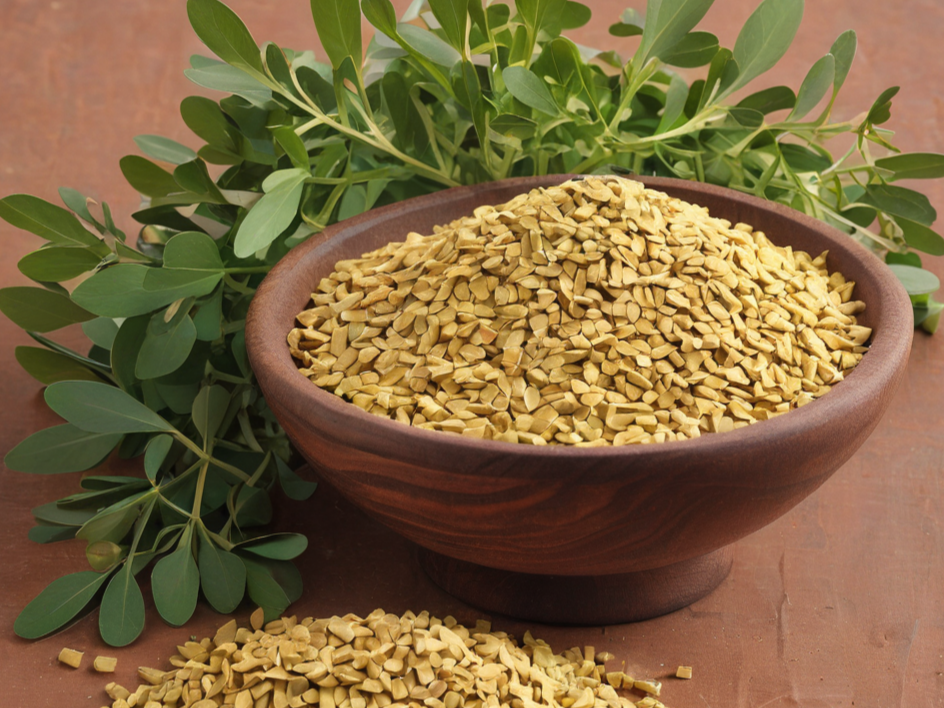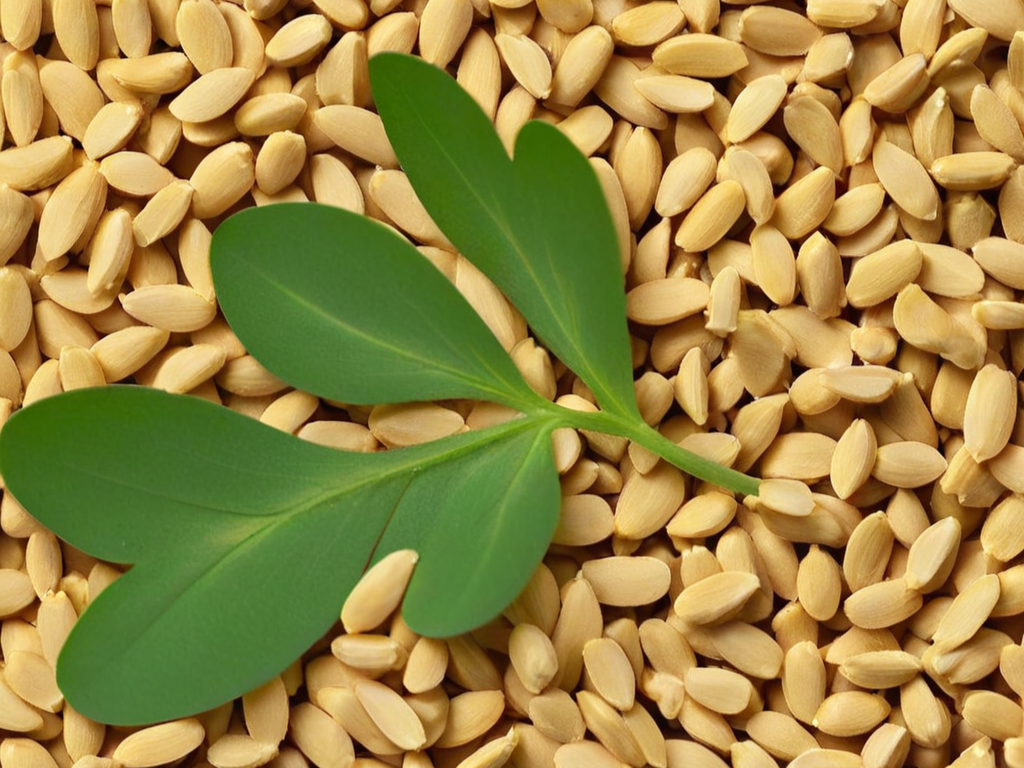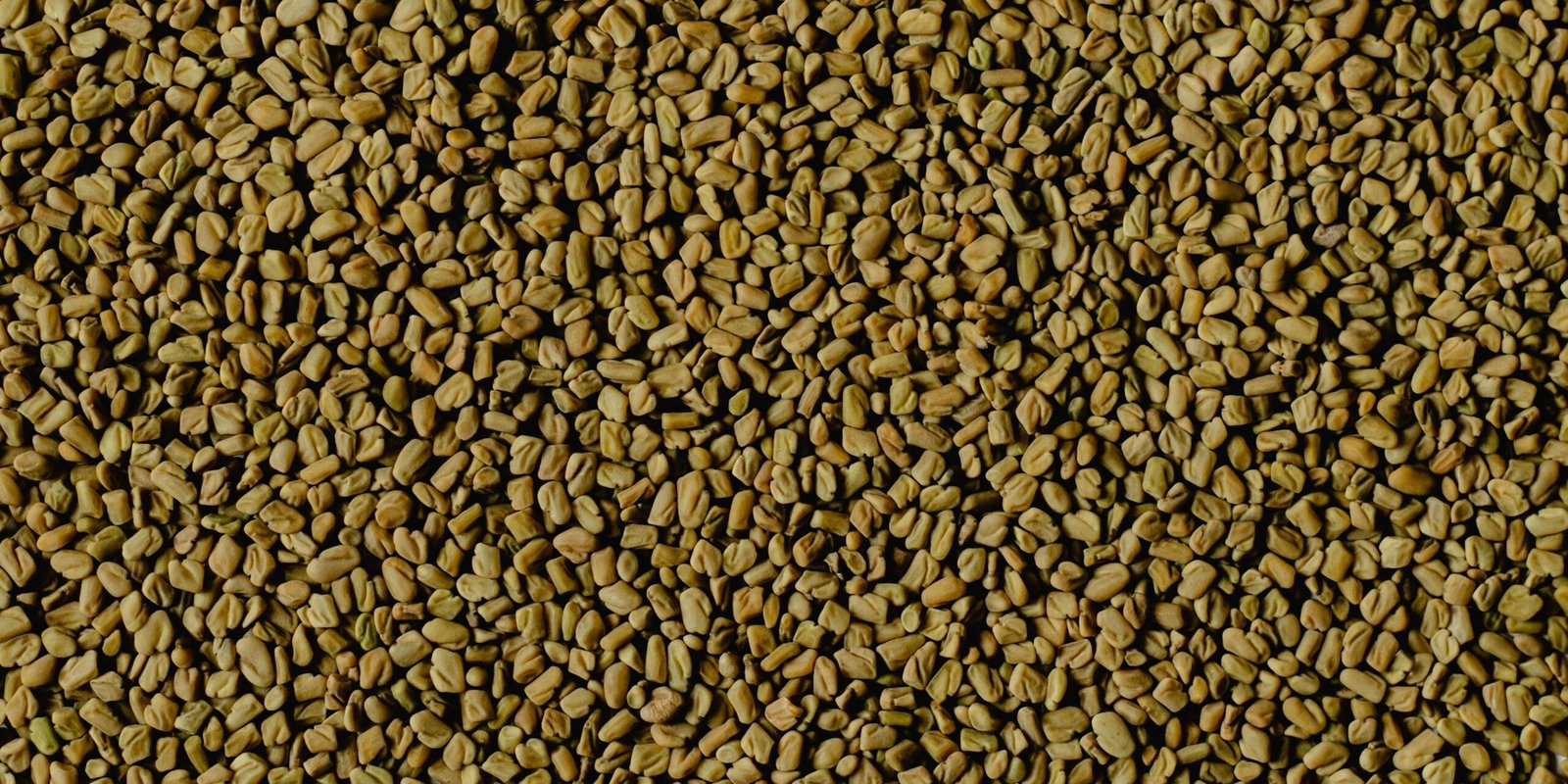Table of Contents
Fenugreek, a versatile herb and spice, has been valued for centuries in traditional medicine and culinary practices across various cultures. Derived from the seeds of the Trigonella foenum-graecum plant, fenugreek boasts a distinctive flavour profile, combining elements of bitterness and sweetness. Beyond its culinary applications, fenugreek has long been revered for its medicinal properties, with a wide range of purported health benefits.
In this journey, we’ll explore the diverse range of health benefits associated with fenugreek, including its potential to support digestive health, regulate blood sugar levels, enhance lactation, promote heart health, and more. We’ll also provide insights into how to incorporate fenugreek into your diet and lifestyle to reap its many rewards.
Fenugreek, scientifically known as Trigonella foenum-graecum, has its origins in the Mediterranean region, particularly in ancient Egypt, Greece, and Mesopotamia. It has been cultivated and used for culinary and medicinal purposes for thousands of years. Historically, fenugreek was revered by ancient civilizations for its diverse applications, ranging from culinary spice to herbal remedies. Today, fenugreek is grown and utilized in various parts of the world, including India, North Africa, and the Middle East, where it continues to be valued for its unique flavour and potential health benefits. Its seeds, leaves, and sprouts are utilized in cooking, traditional medicine, and herbal supplements, contributing to its widespread popularity and continued cultivation across different cultures and regions.
NUTRITIONAL VALUE

Fenugreek, both as seeds and leaves, offers a modest yet diverse nutritional profile. Rich in protein, fiber, and essential vitamins and minerals, fenugreek seeds provide valuable nutrients for overall health. They are particularly notable for their high content of iron, manganese, magnesium, and phosphorus, essential for energy metabolism, bone health, and muscle function. Fenugreek seeds also contain significant amounts of vitamins A and C, which act as antioxidants to protect cells from oxidative stress and support immune function.
Additionally, fenugreek seeds are a good source of dietary fiber, aiding digestion and promoting satiety. Fenugreek leaves are also rich in vitamins A and C, calcium, and potassium. Incorporating fenugreek into your diet can provide a nutritional boost and contribute to overall well-being.
HEALTH BENEFITS

Fenugreek (Trigonella foenum-graecum) is a versatile herb with a long history of use in traditional medicine and culinary practices.
REGULATES BLOOD SUGAR LEVELS
Fenugreek seeds contain soluble fiber and compounds like galactomannan, which may help regulate blood sugar levels by slowing down the absorption of carbohydrates and improving insulin sensitivity. This makes fenugreek potentially beneficial for managing diabetes and improving glycemic control.
SUPPORTS DIGESTIVE HEALTH
Fenugreek seeds are rich in dietary fiber, which aids digestion, promotes regular bowel movements, and prevents constipation. Additionally, fenugreek may help alleviate symptoms of indigestion, such as bloating and gas, by soothing the digestive tract and reducing inflammation.
PROMOTES HEART HEALTH
Fenugreek seeds contain compounds like saponins and flavonoids, which have been associated with potential benefits for heart health. These compounds may help lower cholesterol levels, reduce the risk of atherosclerosis, and improve cardiovascular function, ultimately reducing the risk of heart disease.
ENHANCES LACTATION
Fenugreek has long been used as a galactagogue, a substance that promotes milk production in breastfeeding mothers. Some studies suggest that fenugreek supplementation may increase milk production and improve milk flow, although more research is needed to confirm its efficacy.
AIDS WEIGHT MANAGEMENT
The soluble fiber in fenugreek seeds can help increase feelings of fullness and satiety, potentially reducing appetite and calorie intake. Additionally, fenugreek may help regulate blood sugar levels, which can contribute to weight management and metabolic health.
ANTI-INFLAMMATORY PROPERTIES
Fenugreek contains compounds with anti-inflammatory properties, such as alkaloids and flavonoids. These compounds may help reduce inflammation in the body, alleviating symptoms of inflammatory conditions like arthritis, asthma, and digestive disorders.
SUPPORTS MEN’S HEALTH
Fenugreek seeds have been traditionally used to support men’s health and vitality. Some studies suggest that fenugreek supplementation may help improve testosterone levels, sperm count, and sperm motility, although more research is needed to confirm these effects.
ANTIOXIDANT EFFECTS
Fenugreek contains antioxidants like polyphenols and flavonoids, which help neutralize harmful free radicals and reduce oxidative stress in the body. This may help protect cells from damage, lower the risk of chronic diseases, and support overall health and longevity.
PROMOTES SKIN HEALTH
Fenugreek seeds contain compounds with potential benefits for skin health, including anti-inflammatory and antimicrobial properties. Fenugreek may help reduce inflammation, soothe irritated skin, and treat conditions like acne, eczema, and dermatitis when applied topically or consumed orally.
MAY AID IN CANCER PREVENTION
Some studies suggest that fenugreek seeds may have anticancer properties, thanks to their antioxidant and anti-inflammatory effects. Fenugreek may help inhibit the growth of cancer cells, reduce tumour formation, and lower the risk of certain types of cancer, although more research is needed in this area.
PRECAUTIONS

While fenugreek offers numerous potential health benefits, there are also certain precautions and potential drawbacks to consider. Here’s a detailed look at the precautions and cons associated with fenugreek:
ALLERGIC REACTIONS
Some individuals may be allergic to fenugreek and experience symptoms such as skin rash, itching, swelling, or difficulty breathing upon exposure. Allergic reactions to fenugreek are relatively rare but can occur in individuals with sensitivities to other plants in the Fabaceae family, such as peanuts or chickpeas.
HYPOGLYCEMIA RISK
Fenugreek may lower blood sugar levels, so individuals with diabetes or hypoglycemia should monitor their blood sugar closely when consuming fenugreek supplements or extracts. Fenugreek may interact with diabetes medications, insulin, or other drugs that lower blood sugar, potentially leading to hypoglycemia (low blood sugar) if not properly managed.
GASTROINTESTINAL UPSET
In some cases, consuming fenugreek seeds or supplements may cause gastrointestinal discomfort, including nausea, bloating, gas, diarrhoea, or abdominal cramps. This may be due to fenugreek’s high fiber content and potential laxative effects, especially when consumed in large amounts or by sensitive individuals.
POTENTIAL DRUG INTERACTIONS
Fenugreek may interact with certain medications, including anticoagulants (blood thinners), antiplatelet drugs, and medications for diabetes or high blood pressure. Fenugreek may enhance or inhibit the effects of these medications, leading to potential side effects or interactions. Individuals taking medication should consult with their healthcare provider before using fenugreek supplements or extracts.
PREGNANCY AND BREASTFEEDING
While fenugreek is generally considered safe for consumption in culinary amounts during pregnancy and breastfeeding, there is limited research on its safety in medicinal doses or concentrated forms such as supplements or extracts. Pregnant or breastfeeding women should exercise caution and moderate their consumption of fenugreek to avoid potential adverse effects.
MAPLE SYRUP ODOR
Fenugreek contains a compound called sotolone, which gives it a distinctive maple syrup-like odour. Some individuals may find the smell or taste of fenugreek seeds or supplements unpleasant, which may affect their willingness to consume it.
POTENTIAL BLOOD THINNING EFFECTS
Fenugreek seeds contain coumarin compounds, which may have mild blood-thinning effects. While fenugreek is not considered a significant source of coumarins, individuals with bleeding disorders or those taking anticoagulant medications should use fenugreek cautiously and consult with their healthcare provider.
NOT RECOMMENDED FOR CHILDREN
Fenugreek supplements or extracts are not recommended for children, as their safety and efficacy in this population have not been well studied. Fenugreek seeds used in cooking are generally considered safe when consumed as part of a balanced diet, but caution should be exercised with supplements or concentrated forms.
INCORPORATING FENUGREEK INTO YOUR DIET

Incorporating fenugreek into your diet can be a flavourful and nutritious addition, offering a variety of culinary possibilities. Here are several detailed ways to use fenugreek in your cooking:
- Spice Blends and Seasonings: Fenugreek seeds are commonly used as a spice in various cuisines, adding depth and complexity to dishes. Toast fenugreek seeds lightly in a dry skillet to enhance their flavour, then grind them into a fine powder using a spice grinder or mortar and pestle. Incorporate fenugreek powder into homemade spice blends, such as curry powder, garam masala, or berbere spice mix, to add a distinct aroma and flavour.
- Curries and Stews: Fenugreek seeds and leaves are popular ingredients in Indian and Middle Eastern cuisine, where they are often used in curries, stews, and vegetable dishes. Add whole fenugreek seeds to hot oil or ghee at the beginning of cooking to release their flavour, or sprinkle fenugreek leaves (known as kasuri methi) over finished dishes for a fragrant garnish.
- Bread and Baked Goods: Fenugreek seeds can be added to bread doughs and baked goods to impart a subtle nutty flavour. Mix whole fenugreek seeds into bread doughs or sprinkle them over the surface of bread loaves before baking. Fenugreek powder can also be incorporated into pancake or muffin batter for a unique twist on traditional recipes.
- Soups and Broths: Fenugreek seeds can be used to flavour soups, broths, and stocks, adding depth and richness to the overall flavour profile. Simmer whole fenugreek seeds along with other aromatic spices and herbs in vegetable or meat-based soups, or add a pinch of fenugreek powder to enhance the flavour of homemade broth.
- Marinades and Rubs: Create flavourful marinades and rubs for meats, poultry, or tofu by combining fenugreek powder with other spices, herbs, and seasonings. Mix fenugreek powder with garlic, ginger, paprika, and yoghurt to create a fragrant marinade for chicken or lamb, or blend it with cumin, coriander, and chilli powder for a spicy rub for grilled vegetables.
- Teas and Infusions: Brew fenugreek seeds into a soothing herbal tea or infusion by steeping them in hot water for several minutes. Fenugreek tea is believed to have various health benefits, including supporting digestion and lactation. You can also combine fenugreek seeds with other herbs like fennel, ginger, or chamomile for a flavourful and aromatic blend.
- Condiments and Sauces: Fenugreek seeds can be used to flavour homemade condiments and sauces, such as chutneys, pickles, and relishes. Toast fenugreek seeds lightly before grinding them into a paste with other ingredients like garlic, ginger, and vinegar for a tangy and flavourful condiment. Fenugreek powder can also be added to tomato-based sauces or gravies for added depth of flavour.
In conclusion, fenugreek stands as a versatile herb with a rich history of culinary and medicinal use, offering a wide array of potential health benefits. From its ability to regulate blood sugar levels and support digestive health to its role in promoting heart health, enhancing lactation, and reducing inflammation, fenugreek has earned its reputation as a valuable botanical ally for overall well-being.
It offers a flavourful and aromatic way to support your health naturally. By incorporating fenugreek into your diet in moderation and with awareness of potential precautions, you can enjoy its many benefits and savour the richness it brings to your culinary creations and well-being.

